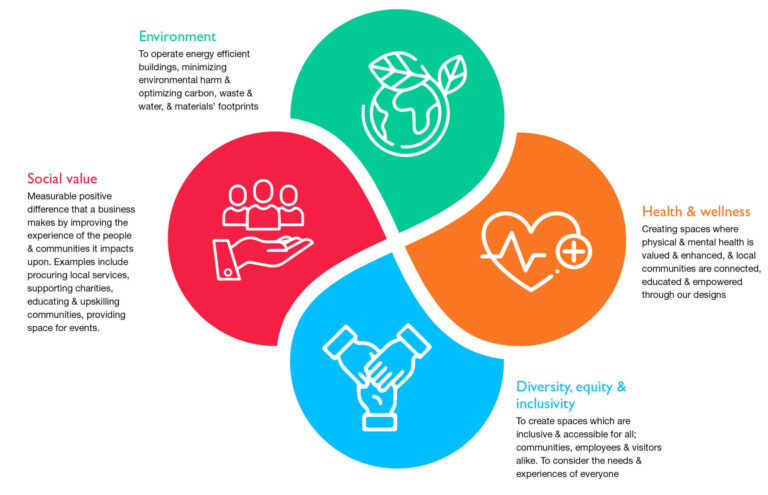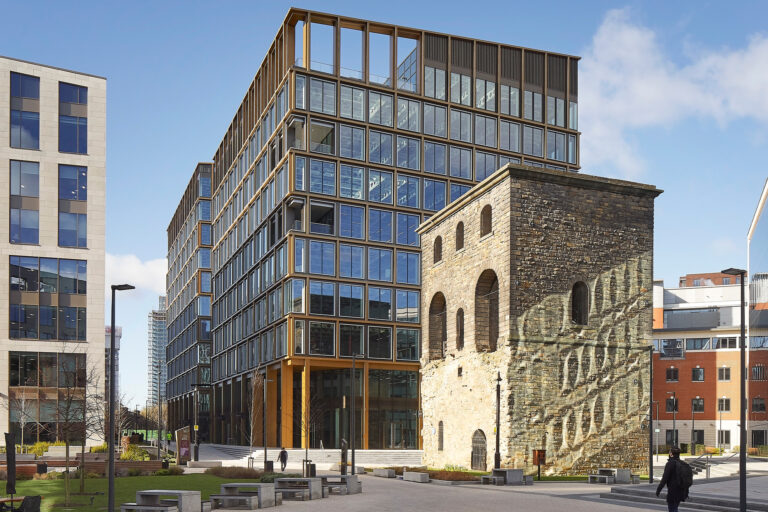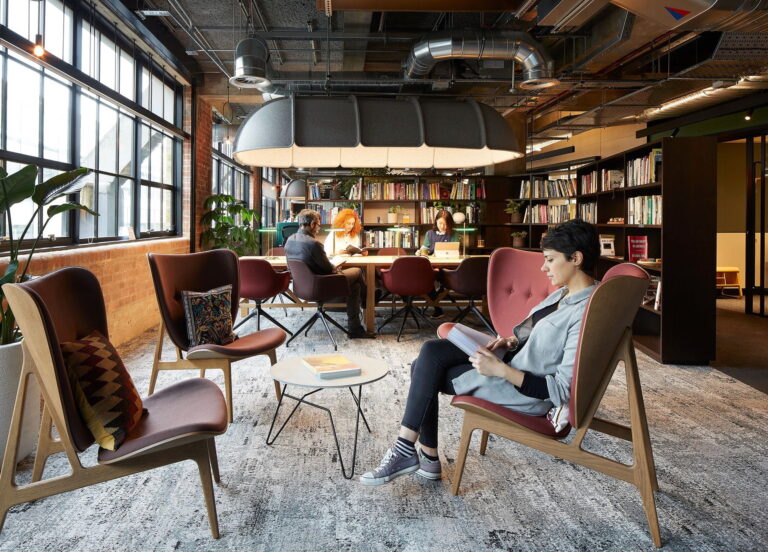Sustainability
“To collaborate with clients, communities, consultants and supply chains, targeting environmentally restorative, healthy and inclusive developments; all whilst optimising our practice’s own socio-environmental footprint.”
A lot has changed since Sir Thomas Bennett founded tp bennett just over 100 years ago. With global average surface temperatures rising by around 1°C, there is an urgency needed to pursue truly sustainable design. We believe this should be a collaborative, invigorating, inspiring and tangible experience. We now have a clearer understanding of the human impact on the planet. We must now design for record-breaking climate and weather extremes, complex supply chains, blended learning and employment practices, and an increasingly connected, but aging demographic. The importance of fully-embedded project sustainability processes is needed more than ever. To do this, we have developed exciting and practical sustainable design processes which work holistically across the following four areas:

We integrate these core areas into our work at all stages – from brief to post occupancy evaluation – with each of our projects delivering its own bespoke ‘Sustainability Plan’: A tailored process which utilises innovative software, novel roadmaps, robust checklists and carefully analysed data to deliver leading sustainability outcomes.
Our teams enjoy supporting and leading clients in delivering their organisation’s specific socio-environmental goals through design of their buildings and spaces. We have a bespoke output-led ‘Sustainability Plan’ process for each project that aligns our architecture and design work with client strategies for net zero carbon and circularity, health and wellness, inclusivity and social value, providing external alignment were sought (e.g. Passivhaus, NABERS, RIBA, LETI, BREEAM, LEED, WELL, and the UN Sustainable Development Goals).
Responsible sourcing & collaboration
Embodied carbon represents about 10% of greenhouse gas emissions; UK residential tenancies are only two years long; and office leases often last less than five years – therefore a key focus of tp bennett is rightly on responsible materials and circular designs.
To improve both the understanding and performance of the materials that we specify – and that are installed in the offices, schools, hospitals and homes of our clients and residents – we have developed AD Lib; our in-house Architecture & Design Library of responsibly sourced products. Assessing products across six environmental and social indicators, AD Lib is an online platform populated in collaboration with manufacturers and suppliers to help assess, and often, to improve, the sustainability performance of products and materials. AD Lib allows our designers to easily compare different materials and products and make informed decisions about the products that we are specifying. Twice commended by the AJ100, AD Lib encourages our suppliers to fully interrogate and understand their entire supply chain. This promotes collaborative change in process, which is necessary to drive positive, continuous innovation within the industry.
Sustainability team
“Sustainability is more than just a job: Supporting our clients and the design and construction community to make lasting change is what truly drives us”
The tp bennett sustainability team is a diverse mix of architects, designers, scientists, software specialists & coders, engineers, researchers and materials experts, who all care deeply about achieving a more sustainable and equitable future through good design and specification. Our experience includes helping develop sector-wide net zero carbon standards for projects and products; writing sector guidance (e.g. inclusive design and circular & responsible materials) and producing typology-specific sustainable design standards (education, residential, student resi & commercial). Our team qualifications include BREEAM, LEED, WELL & Fitwel accreditations, Passivhaus Designer Certifications and Environmental Chartership. Using this experience, the tp bennett sustainability team bridges the gap between design teams and clients, providing clear pathways to achieve exciting and innovative outcomes - including:
- MEPC Wellington Place, Leeds: The first buildings outside of London to achieve a NABERS Designed Reviewed Target Rating of Five Stars or above, delivering net zero carbon in operation
- BP, London: One of the largest net zero carbon office fitouts, comprising the most detailed measurement and optimisation of an office fit-outs carbon footprint in the UK at the time




